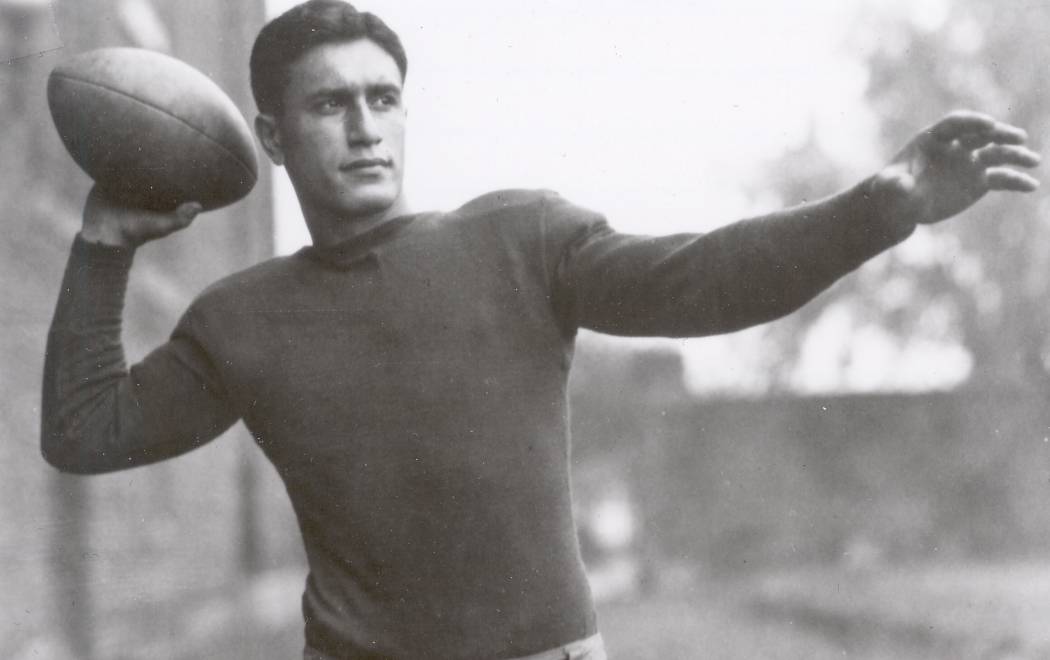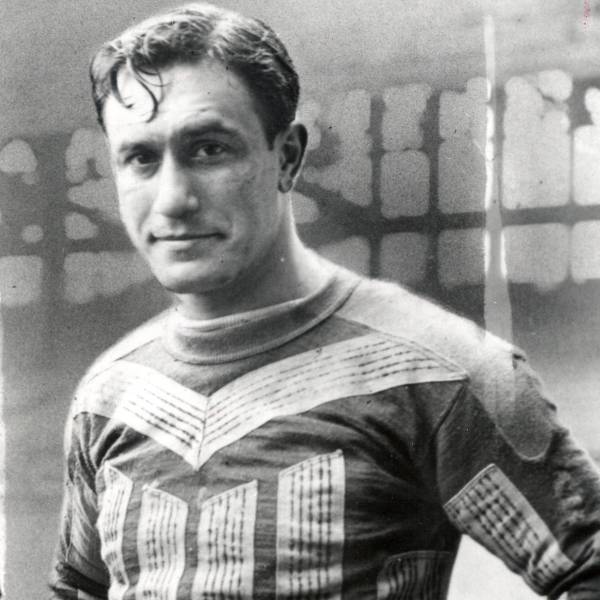Friedman First NFL QB with 'Computer in His Head'
6/15/2021

Quarterback often is called the most important position in sports.
Not football. Sports!
“The quarterback position calls for a person with a lot of internal poise, presence and confidence, and a person who is able to focus down the field while people are naturally trying to crash into him,” Hall of Fame coach Bill Walsh said. “It takes a unique person, and by decree, quarterbacks do it. But the great ones are able to stand up to the pass rush, throw accurately down the field, and they have instincts – just basic instincts they were born with and even intuitive instincts. You see that in the Hall of Fame-type of player.”
Following the enshrinement of the Class of 2021 this August, 35 pre- and modern-era quarterbacks will have his Bronzed Bust in Canton.
And while Benny Friedman didn’t throw the first forward pass in National Football League history, he was the catalyst for how the quarterback position would be played moving forward.
Friedman, a two-time All-America quarterback at the University of Michigan, played with the Cleveland Bulldogs (1927), Detroit Wolverines (1928), New York Giants (1929-1931) and the Brooklyn Dodgers (1932-1934).
When he turned pro, the college football sensation was greeted with fanfare that was exceeded only by the media attention given to future Hall of Fame halfback Red Grange when he turned pro in 1925.
Following the 1928 season, New York Giants owner Tim Mara purchased the Detroit franchise just to secure the services of Friedman. He then paid Friedman the highest salary in the league, $10,000 a year. Mara’s decision was based not only on the quarterback’s league-leading performances, but also on his all-important gate appeal.
From 1927 through 1930, Benny tossed 11, nine, 20 and 13 touchdown passes, leading the league each year. In 1928, he led the league in both rushing touchdowns and touchdown passes; no other player has accomplished that feat. His 20 touchdown passes in 1929, with four in one game, were both NFL records for years.

Friedman, a Class of 2005 Pro Football Hall of Famer, became the NFL’s all-time career leader in touchdown passes during the fourth game of his third season (1929). He surpassed the career total thrown by Curly Lambeau. Friedman held the mark until Sammy Baugh exceeded it midway through the 1943 season.
Prior to Friedman, passes had been thrown, but most came out of desperation on third down. No one had thrown them with the same frequency, accuracy and ability to get the ball into the end zone as Friedman.
It was not an easy ball to throw in that era. The shape was dramatically different than it is today. Friedman worked to widen his grip to accommodate the fat, melon-shaped football of his time. He would press down his hand and force his thumb and little finger into a straight line, holding it in that position for as long as he could stand the considerable pain it caused.
He also purchased a handball to keep in his coat pocket to squeeze and release for a few hours at a time to strengthen his fingers, hands and wrists every chance he got.
Friedman changed the game. He defined what a quarterback should be. In his 1930 book “The Passing Game,” Friedman explained throwing wasn’t all about just having strong hands.
“To be a successful passer you must have sturdy forearms and shoulders. To stand the physical gaff of four periods of football you must be in tip-top physical condition and your legs, above everything else, must be strong.”
He was a well-balanced football player physically and was able to process the game quickly mentally.
"Every passer has a little computer in his head,” Friedman said later in life. “In a split second, he has to determine the direction the receiver is going, the distance he’s away from the passer and the speed he is traveling. With all that data in his mind, he must then throw the pass.”
It was with that tremendous knowledge of the game, his physical tools, a tireless work ethic and an incredible commitment to be great that Friedman became the NFL’s first great passer.
His legacy, like that of everyone enshrined at the Pro Football Hall of Fame, will be preserved in Canton.
Go back to all blog listings

